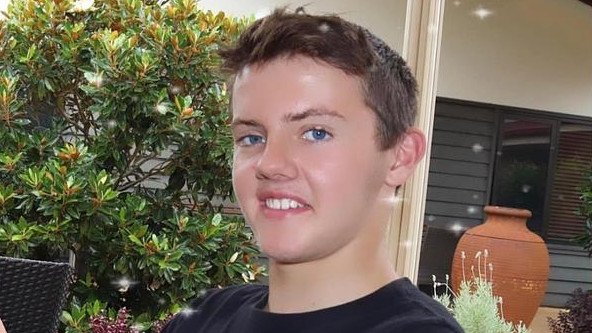Jeremy Webb: New claim in death of 16-year-old who ate beef sausages on camping trip on Central Coast, NSW
The mother of a teenage boy who died on a camping trip in NSW has revealed a new theory behind his sudden death.

The mother of a teenage boy who died on a camping trip on the NSW Central Coast has revealed a new theory behind his sudden death.
Jeremy Webb was 16 when he collapsed after eating beef sausages during a trip with friends at MacMasters Beach in June 2022. The group had cooked the sausages over a campfire, but by 11pm Jeremy began struggling to breathe and collapsed while trying to reach an adult in a nearby caravan.
His friends performed CPR, but the teenager was pronounced dead about 90 minutes later at Gosford Hospital.
Sign up to The Nightly's newsletters.
Get the first look at the digital newspaper, curated daily stories and breaking headlines delivered to your inbox.
By continuing you agree to our Terms and Privacy Policy.His death was initially attributed to asthma, but a coronial inquest is now examining whether the sausages played a role after he was posthumously diagnosed with mammalian meat allergy, a potentially life-threatening reaction triggered by tick bites.
The condition, also known as alpha-gal syndrome, causes allergic reactions to meats such as beef, pork and lamb, as well as products containing gelatin or animal fat. Symptoms can appear between two and ten hours after eating, ranging from abdominal pain and vomiting to anaphylaxis.
If the inquest confirms red meat allergy as a factor, Allergy and Anaphylaxis Australia say Jeremy’s case could be the first fatal instance of the condition recorded in Australia.
Jeremy’s mother, Ms Webb, told the ABC her son had been bitten by ticks “from the age of two” while camping in bushland on the Central Coast.
“When I first suspected mammalian meat allergy, I did look into it, but there wasn’t much information back then,” she said. “I sort of saw it as a food intolerance, not an allergy that can kill you from anaphylaxis.”
She said she hoped the inquest into Jeremy’s death would lead to greater awareness. “I think Jeremy would be so proud of this inquest about his death,” she said. “If it saves one more life, then that’s a win, a huge win.”
NSW Deputy State Coroner Carmel Forbes is expected to deliver findings by the end of 2025.
Allergy expert Associate Professor Sheryl van Nunen told the hearing that cases of mammalian meat allergy have risen by 40 per cent each year since 2020, with the highest incidence in NSW and Queensland. She also said people have a 50 per cent chance of developing the allergy after being bitten by just two ticks.
Tick-Induced Allergies Research and Awareness (TIARA) advises bushgoers to “dress for the occasion” by wearing long sleeves, full-length pants, and socks pulled over pant cuffs.
The organisation warns against using tweezers or tick-removal gadgets, which can release tick saliva and increase allergic risk. Instead, they recommend applying a freezing spray until the tick drops off, or seeking medical help if it doesn’t.

